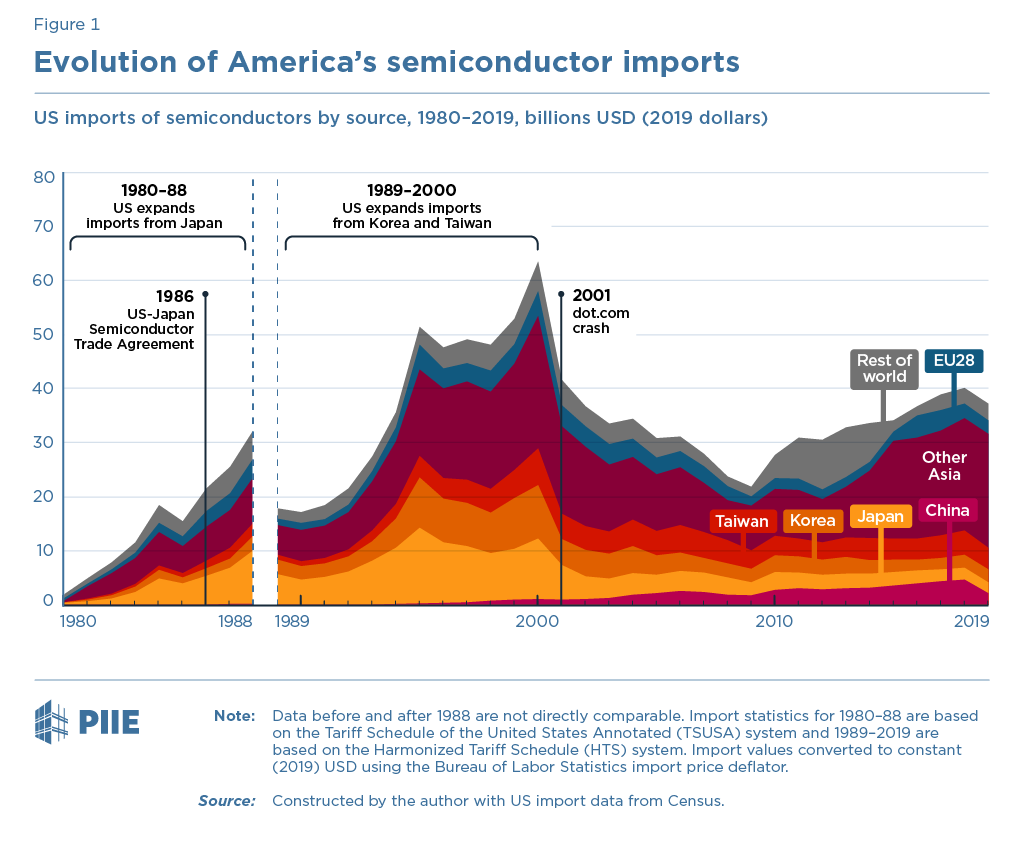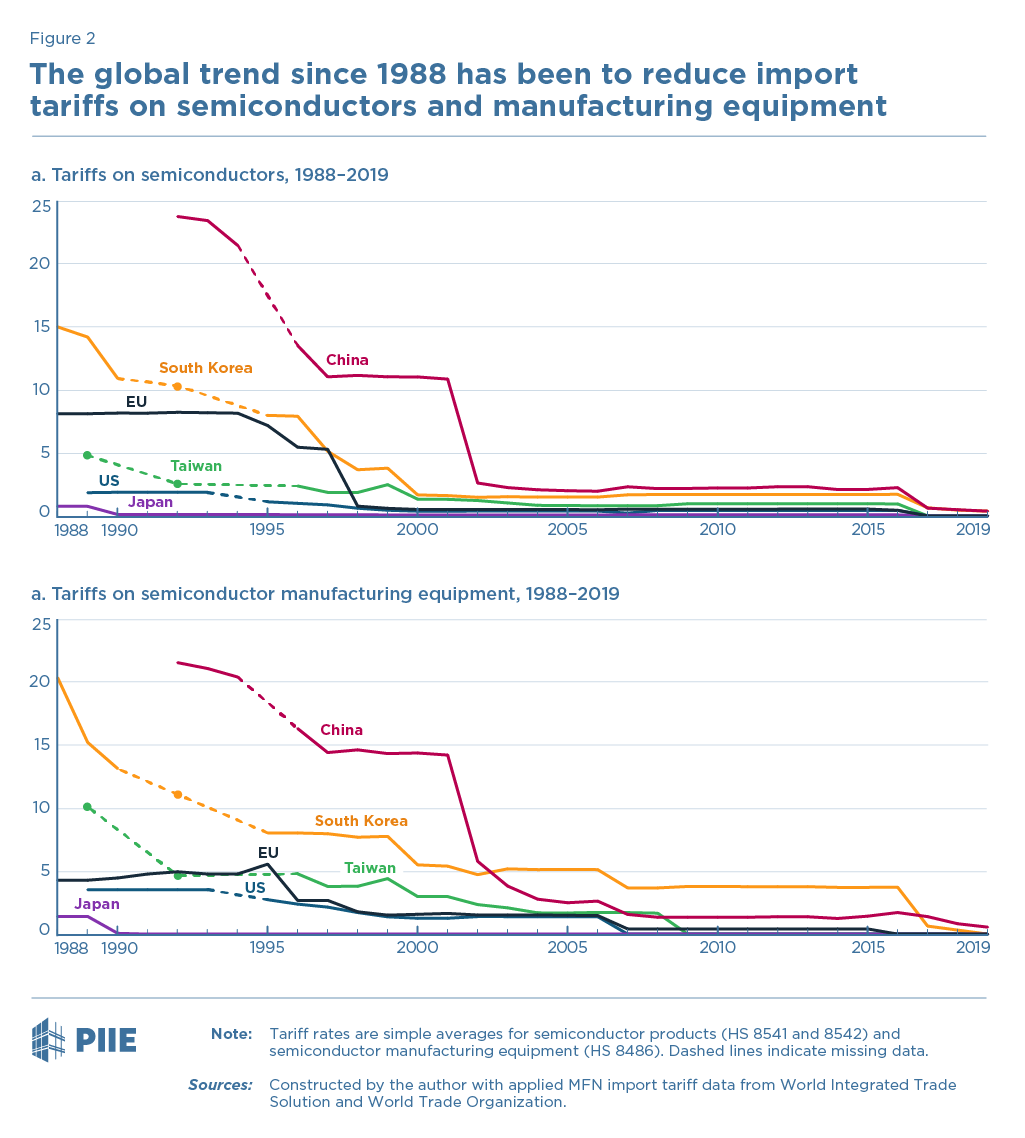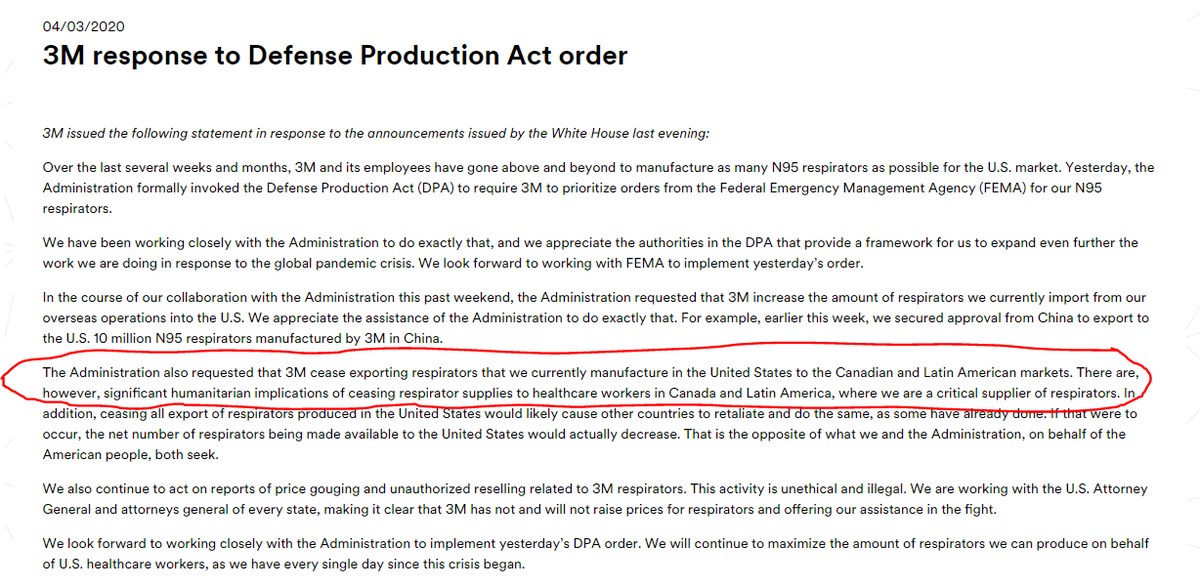
More downside to US unilateralism. Even to protect national security.
European semiconductor and equipment makers accuse US of using export controls on Huawei and SMIC to shut them out of the Chinese market, while exempting US companies.
By @YuanfenYang
ft.com/content/7baa8c…
European semiconductor and equipment makers accuse US of using export controls on Huawei and SMIC to shut them out of the Chinese market, while exempting US companies.
By @YuanfenYang
ft.com/content/7baa8c…
Multilateralizing export controls is hard. But the failure to do so could end up undermining the underlying rationale - the protection of national security - and punish American companies' commercial interests in the long run.
piie.com/publications/w…
piie.com/publications/w…
Here is more analysis of the data, illustrating why European companies (as well as those in South Korea, Taiwan, and Japan) are also concerned.
US unilateral export control policy for the semiconductor industry impacts THEM ALL...
US unilateral export control policy for the semiconductor industry impacts THEM ALL...
https://twitter.com/ChadBown/status/1339679449986510848?s=20
• • •
Missing some Tweet in this thread? You can try to
force a refresh








